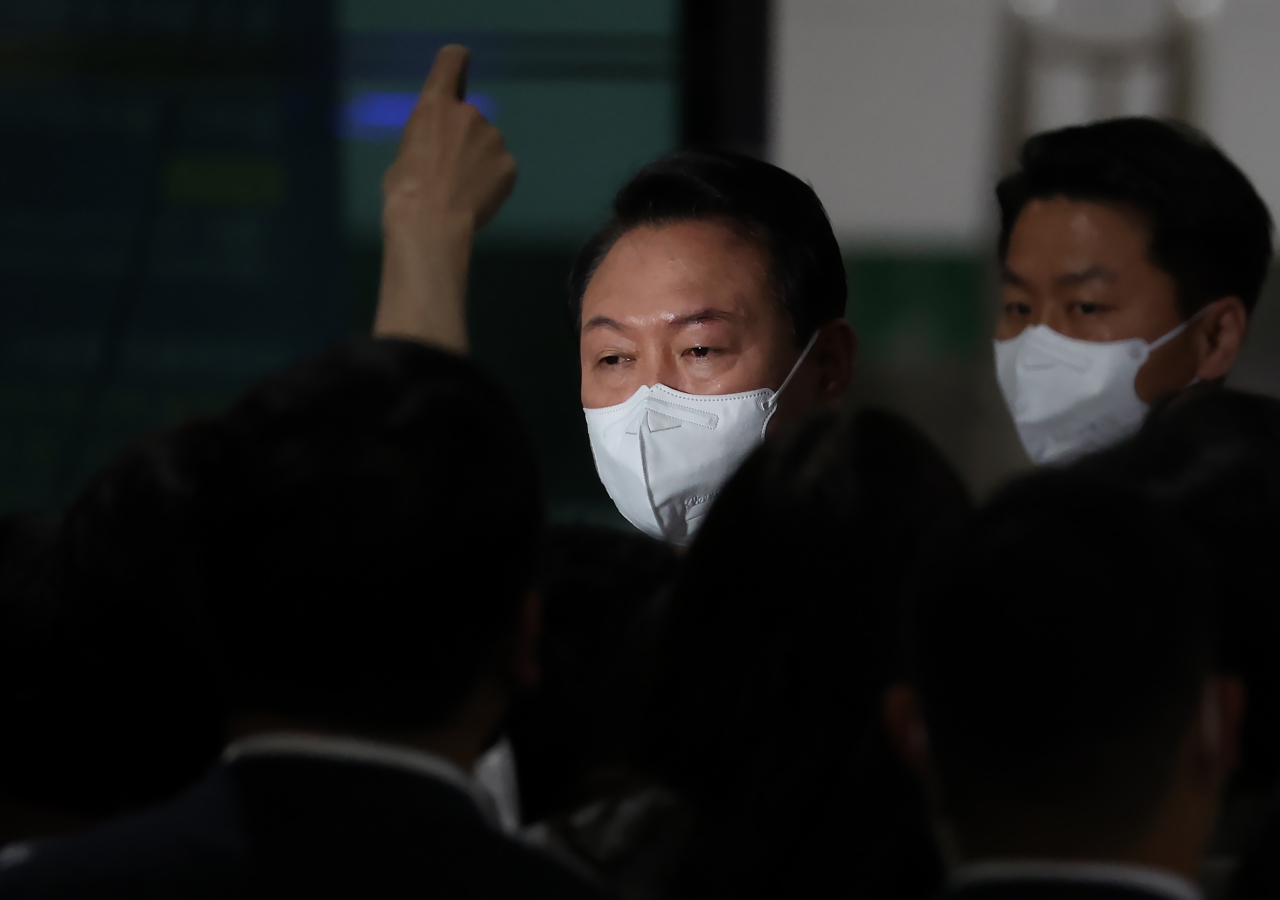North Korea criticized South Korean President Yoon Suk-yeol as a person who likes to “show off,” and said Yoon is rehashing an old-school North Korea policy, Tuesday.
Uriminjokkiri, one of the North’s propaganda websites, called Yoon a “manspreading ship owner” who solely pursues his own authority and pleasure, and bothers his subordinates by ordering the relocation of the presidential office and the residence.
The website also pointed how Yoon has “impertinently” proposed to North Korea that he would open the door for dialogue and establish a “bold plan” to improve the North’s economy and that, he is “reboiling“ the policy of former President Lee Myung-bak.
“Yoon likes to bluff, so he wanted to exercise his authority, it seems,” it said. “There is nothing new about what the ‘bold plan’ is, however deep we observe it. (Yoon’s speech) was merely a rewrite of Lee Myung-bak administration’s ‘Vision 3000: Denuclearization and Openness.’”
The North Korean propaganda website added that Lee’s North Korea policy was “thrown into a cesspit for being unscientific and hollow.”
Former South Korean President Lee Myung-bak’s “Vision 3000: Denuclearization and Openness,” is a formula in which Seoul promised to offer comprehensive aid to Pyongyang, to bring North Korea’s per capita income to $3,000 within 10 years on the premise that North Korea gives up its nuclear program. Lee served as president from 2008 to 2013.
The policy was firm on the idea that denuclearization of North Korea should come before any economic incentives and a lifting of international sanctions.
The reclusive regime appears to have put up its guard against the new administration.
From the couple of speeches delivered to the public since his inauguration on May 10, Yoon has shown a shift to a more hard-line North Korea policy from the previous Moon Jae-in administration.
Under his “bold” plan, Yoon had pledged to work together with the international community to provide significant improvements to North Korea’s economy and the lives of its people -- only if North Korea first takes practical steps for denuclearization.
While the framework -- to demand for Pyongyang’s actions first before providing any kind of incentives in return -- may appear to be similar to that of Lee’s Vision 3000 policy, what sets Yoon apart is his willingness to provide humanitarian aid.
Yoon has offered to make “unsparing” effort to support the COVID-19 situation in North Korea, as it has seen over a million cases of infections.
“The incumbent government appears to be strategically taking a shifting stance from (the North Korea policy of) the previous Moon Jae-in administration, to appeal to its conservative supporters,” Hong Min, a senior researcher at the Korea Institute for National Unification’s North Korea research division told The Korea Herald.
“So it would be important that the government makes firm of its priority for denuclearization.”
At the same time, the framework requiring the North’s initial actions on denuclearization may not be efficient, as North Korea has been rejecting the idea, and has been demanding for all negotiating parties to “reduce their actions on parts that can pose as security threats to the other side,” Hong added.
Jun Bong-geun, a national security and unification studies professor at Korea National Diplomatic Academy, explained that there are four pillars in North Korea policy that all administrations, whether they are conservatives or liberals, should operate, though the priorities may be different.
According to Jun, the four pillars consist of dialogue and cooperation with North Korea; denuclearization negotiation; international sanctions; and military deterrence against the North.
Yoon’s policy appears to lean toward nuclear deterrence, as it reflects the political stance of the country’s conservative bloc. But that does not mean the incumbent government would disregard the opportunity for inter-Korean talks or negotiations, Jun said.
By Jo He-rim (
herim@heraldcorp.com)





![[Herald Interview] 'Trump will use tariffs as first line of defense for American manufacturing'](http://res.heraldm.com/phpwas/restmb_idxmake.php?idx=644&simg=/content/image/2024/11/26/20241126050017_0.jpg)


